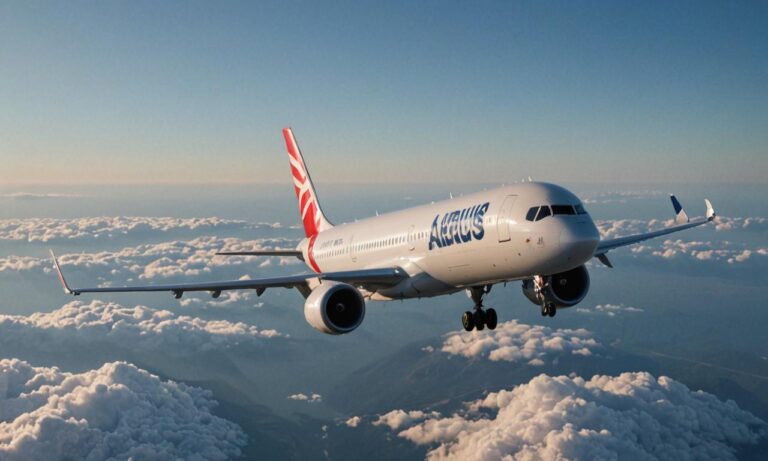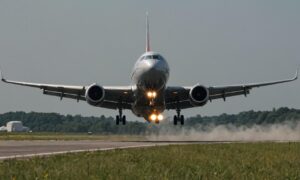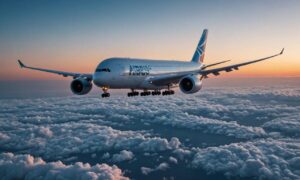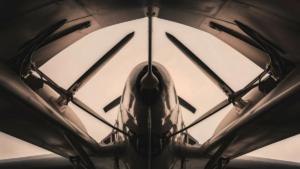The Airbus A321-231 is a member of the Airbus A320 family, which includes narrow-body, commercial passenger jetliners. Developed by Airbus, the A321-231 is renowned for its versatility, efficiency, and performance in short to medium-haul flights.
Design and Specifications
The A321-231 features a lengthened fuselage compared to its predecessors in the A320 series, allowing it to accommodate more passengers while maintaining fuel efficiency. With a typical seating capacity of around 185 passengers in a two-class configuration, the A321-231 offers airlines the flexibility to cater to varying passenger demands.
Equipped with modern avionics and aerodynamic enhancements, the A321-231 boasts impressive operational capabilities, including its ability to operate in diverse weather conditions and challenging airports.
Performance and Efficiency
Powered by efficient jet engines, the A321-231 delivers superior fuel efficiency, reducing operational costs for airlines while minimizing environmental impact. Its advanced engines, combined with aerodynamic improvements, contribute to reduced fuel consumption per seat and lower emissions compared to previous generations of aircraft.
The A321-231’s range enables airlines to serve a wide array of routes, from short domestic flights to longer international journeys, making it a preferred choice for airlines seeking operational flexibility.
Passenger Comfort and Cabin Features
The cabin of the A321-231 is designed with passenger comfort in mind, featuring spacious seating arrangements, ample overhead storage, and modern in-flight entertainment systems. Passengers can enjoy a comfortable travel experience with ergonomic seating and enhanced cabin amenities.
The aircraft’s innovative cabin design maximizes space and efficiency, providing passengers with a pleasant and relaxing environment throughout their journey.
Market Impact and Adoption
Since its introduction, the Airbus A321-231 has garnered significant interest from airlines worldwide, with many carriers incorporating the aircraft into their fleets to meet growing passenger demand and optimize route networks.
Its combination of reliability, efficiency, and passenger appeal has positioned the A321-231 as a leading choice for airlines seeking modern, cost-effective solutions for short to medium-haul operations.
The Airbus A321-231 stands as a testament to Airbus’s commitment to innovation and excellence in commercial aviation. With its advanced design, superior performance, and passenger-centric features, the A321-231 continues to set the standard for narrow-body aircraft in the industry.
As airlines strive to meet evolving passenger expectations and operational demands, the A321-231 remains a versatile and reliable asset, ensuring seamless travel experiences for passengers around the globe.
Fuel Efficiency and Environmental Impact
One of the key selling points of the Airbus A321-231 is its remarkable fuel efficiency, which translates to lower operational costs for airlines. By consuming less fuel per seat mile, airlines can optimize their operating expenses and potentially offer more competitive ticket prices to passengers.
In addition to cost savings, the A321-231’s reduced fuel consumption also contributes to a lower environmental footprint. With increasing concerns about climate change and sustainability, airlines are increasingly drawn to aircraft models like the A321-231 that prioritize efficiency and minimize emissions.
Technological Advancements
Continual advancements in aviation technology have played a crucial role in shaping the capabilities of aircraft like the Airbus A321-231. From state-of-the-art avionics systems to advanced materials and manufacturing techniques, technological innovations have enhanced the safety, efficiency, and performance of modern commercial aircraft.
The A321-231 exemplifies Airbus’s commitment to leveraging cutting-edge technology to push the boundaries of what’s possible in commercial aviation. As technology continues to evolve, future iterations of the A320 family may incorporate even more advanced features to further improve efficiency and passenger comfort.
Enhanced Passenger Experience
Beyond the physical attributes of the cabin, airlines are increasingly focusing on enhancing the overall passenger experience through personalized services and digital innovations. From seamless booking processes to in-flight connectivity options, airlines are leveraging technology to create a more convenient and enjoyable travel experience for passengers.
The Airbus A321-231, with its spacious cabin and modern amenities, serves as a platform for airlines to deliver exceptional service and cater to the evolving preferences of travelers. By prioritizing passenger comfort and convenience, airlines can differentiate themselves in a competitive market and build customer loyalty.
Frequently Asked Questions
| Question | Answer |
|---|---|
| What is the seating capacity of the Airbus A321-231? | The typical seating capacity of the A321-231 is around 185 passengers in a two-class configuration. |
| How does the A321-231 contribute to fuel efficiency? | The A321-231 features efficient jet engines and aerodynamic enhancements that reduce fuel consumption per seat mile. |
| What sets the A321-231 apart from previous generations of aircraft? | The A321-231 offers improved range, fuel efficiency, and passenger comfort compared to earlier models, making it a preferred choice for airlines. |






